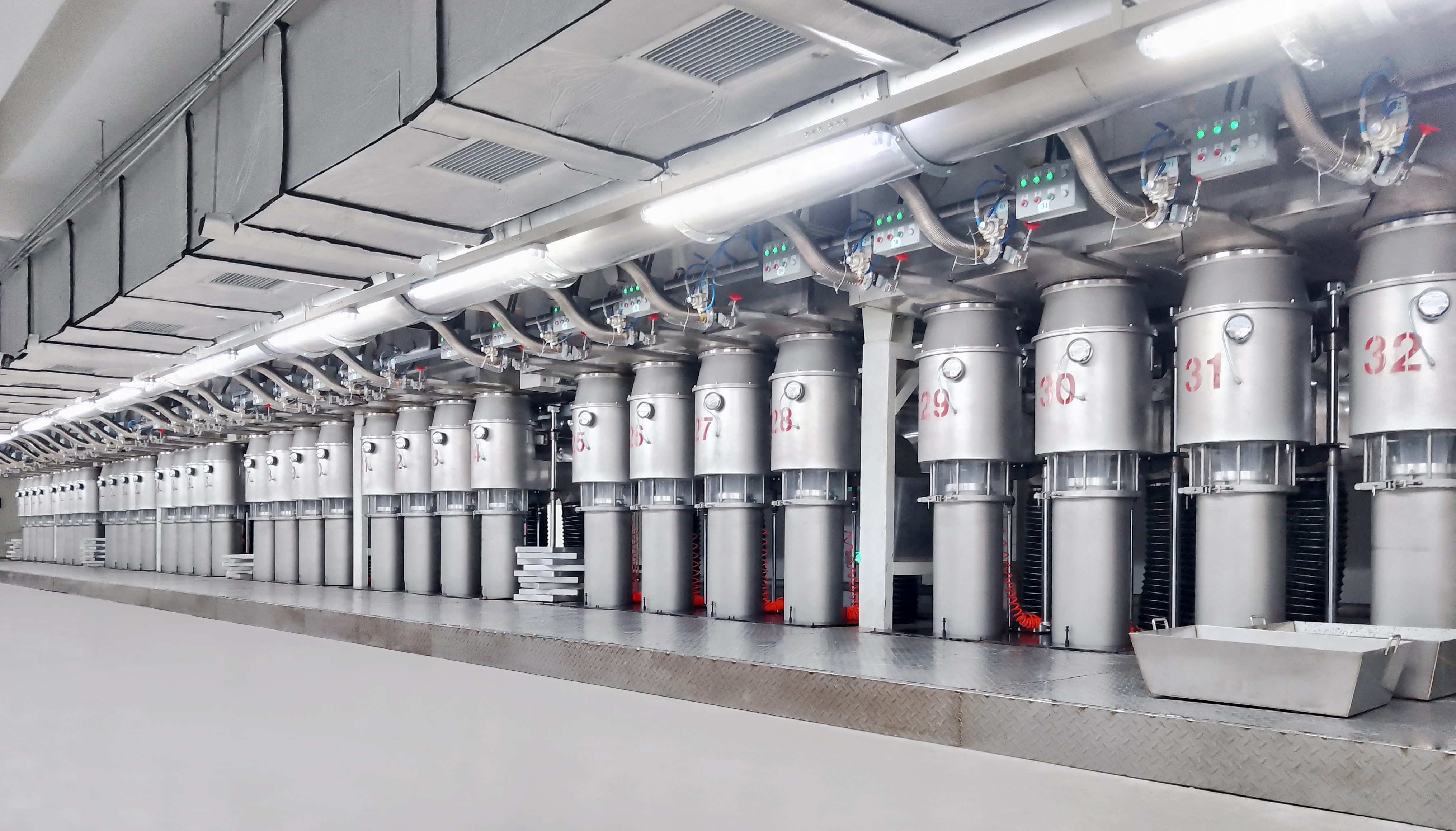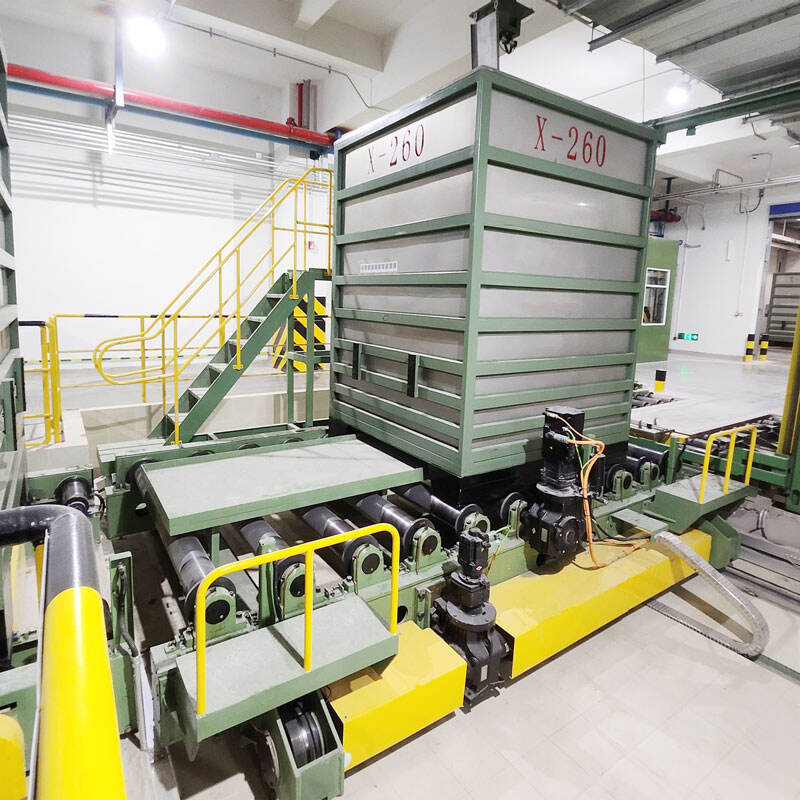New technology is always being created for the fiber manufacturing machinery within the deals on the industries. In the value chain of manufacturing, the industries want high efficiency, durability, quality, and sustainability. These attributes are a value add to the production process of fiber manufacturing machinery and broaden the scope of the manufacturing operations in different industries within textiles, non-woven textiles, and composites. Shenzhen Softgem Technology Co. Ltd. being a provider of advanced industrial solutions focuses on value and integration of tech all innovations and technologies and focuses them on the recommended fiber manufacturing machinery models. In this blog, we will discuss focused innovations in fiber manufacturing machinery technology.

Internet of Things (IoT) technology is changing how we operate fiber making machines. Modern fiber making machines have more than a few sensors collecting real-time data on production parameters like temperature and pressure, speed, and fiber thickness. All of this information is sent and stored in a central control system, which lets operators watch the performance of machines remotely and in real-time. For instance, if a sensor picks up on an abnormal temperature in the fiber making machine's melting section, the system sends alerts to operators, who can make adjustments to avoid costly machine damage and defects. New fiber making machine models sales by Shenzhen Softgem offer even more features by enabling data storage and analysis so businesses can identify production bottlenecks over time and process optimization. This innovation decrease the workloads of manual monitoring and the chances of production errors, which makes fiber making machines more reliable.
Fibre making machines have new innovations such as Artificial Intelligence technology that enhances performance. AI technology enables the machine to independently modify production parameters by using real-time data and accounting for preset production quality. In contrast with older machines that poorly adjust production parameters on fibre machines, AI-powered machines use data from previous production runs to refine parameters for new types of raw materials. For example, while making fibre from recycled PET bottles, the machine's AI technology autonomously controls and adjusts the melting temperature and the stretching speed of the fibre while keeping the strength of the fibre within the required limits. This smart control also facilitates predictive maintenance. AI within the machine assesses operational data and predicts failures like worn out machine parts, warning maintenance staff to resolve them long before they break to reduce unplanned downtimes. AI integration, as noted by Shenzhen Softgem, improves the flexibility and efficiency of their machines to quickly adapt to different production requirements.
As eco-friendly practices become more ubiquitous in the industry, sustainability-centered innovations are becoming a central focus in the development of fiber-making machines. One example of these innovations are the new energy-efficient features, such as high-efficiency heaters and energy recovery systems, on these machines. Such features significantly lessen the machines’ energy use by recovering and reusing waste heat generated during the production process. For example, fiber-making machines equipped with heat recovery systems can recycle the heat fiber-cooling and use it to pre-heat incoming raw materials, which reduces energy use by 20-30%. Other sustainable innovations include improved fiber-making machines processing more recycled and biodegradable feedstock. Newer machines can transform waste textiles, plastic bottles, and other plant materials into high-quality fibers as a means of expanding the use of renewable resources. Shenzhen Softgem sustainable fiber-making machines use industry-best sustainable practices and protect the global environment, enabling companies to sustain high production standards while lowering their carbon emissions.

The advancements in how materials can be used have widened the possibilities the fibre making machine can be used for. Originally designed for synthetic fibre materials like polyester, the newer models have the ability to process a larger variety of materials such as natural fibres (hence cotton and hemp), recycled fibres and speciality materials (like biodegradable polymers and flame retardant additives). This has been made possible by the improvements of machine components which include adjustable feeding and multi-zone heating systems. For instance, the fibre making machine with flexible feeding systems can process both granular raw materials (plastic pellets) and fibrous raw materials (recycled textile scraps) without lot of alterations. This flexibility enables the industries to manufacture different types of fibres for particular uses, for example, medical grade antibacterial fibres or high strength industrial fibres. Fibre making machine models of Shenzhen Softgem that have increased material compatibilities assist industries in developing new lines and gaining access to new markets.
Unlike integrated fibre making machines, modular designs allow for greater versatility and scalability Improvements made to modular designs have made fibre making machines easier to modify and upgrade. Modular machines have separate and independent functional sections like feeding, melting, stretching, and cutting. This means businesses can add, remove, or change sections to make adjustments to machines for different production requirements. For example, cutting modules can be switched to accommodate different lengths of fibre, making those machines more economical. Modular designs also make machines more economical to maintain, as faulty parts can be removed, repaired, or replaced, reducing downtime. Shenzhen Softgem realizes these advantages and offers modular machines to meet the production needs of small and medium-sized enterprises. This approach gives businesses greater production flexibility at a lower cost.
 Hot News
Hot News2024-07-25
2024-07-25
2024-07-25